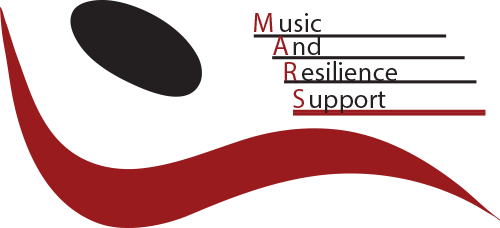Introduction
Vocal activities and repertoire
This module aims to:
- Develop, improve competences and experiment with elements of good practice around the role of the facilitator in the context of “using the voice as a group”;
- Spark a critical reflection on your own competences and opinions, starting from your practice;
- Elaborate, and reflect on the specificity of “MARSian (choral) conductor”: the profile, the competences, the challenges.
In detail:
1. Develop, improve competences and experiment with elements of good practice around the role of the facilitator in the context of “using the voice as a group”. The areas of competence focused on are:
- managing other people’s voice: considering technical (vocal technique) and psychological implications;
- working with the sound /working on the quality of the vocal sound;
- strategies of communication within the group: verbal and nonverbal communication (gestures, proxemics etc.);
- use of movements / use of body language;
- use of space;
- choral arranging;
- choral improvisation/role of improvisation in a session of vocal activity within a group;
- when, why and how to plan the rehearse/session;
- choice of activities (vocal and choral games, repertoire).
2. Spark a critical reflection on your own competences and opinions, starting from your practice, in order to:
- recognize and clarify each personal point of view on the choral activities in general and in the “MARSian context” in particular;
- support individual research on vocal/choral activities and look for new resources;
- support motivations to increase your competences and awareness, having in mind a complex model and within a critical and open approach.
3. Elaborate, and reflect on the specificity of “MARSian (choral) conductor”: the profile, the competences, the challenges.
- We think that to learn something means to organize knowledge, skills and experiences that we already have, finding and discovering new links and integrating the new inputs/contributions in our cognitive network.
- For this, we ask that during this module you reflect on your practical activities as choral facilitators and deepen and critically discuss your personal knowledge and ideas, sharing them with other colleagues. We also invite you, as much as possible, to observe and discuss other people’s work.
We encourage you to use the assignment tasks to reach this essential aim.
Webinars
Towards critical engagement: questioning dialogues and monologues.
We invite you to reflect on the following questions and to conceive answers that relate to your own personal practice:
- Which elements are specific to the work around voice? Remember to consider psychological and emotional aspects;
- Which elements are specific to working with a choir? Focus on the social aspects and the opportunities the “choral instrument” offers to improve social inclusion;
- Which kinds of communication and which communicative resources (especially non verbal communication) are valuable in a choral session? To which aim?
- What do you think is the function of the choral activity in the “MARSian” context and for the MARS project?
Assignments
The nature of this Module is practical and experiential: we would like overall to encourage you to reflect on your competences and to become aware of your personal perspective.
For this module we ask you to:
- conduct a practical assignment, leading one or two choral sessions, using (and arranging) one of the tunes we suggest, and drafting written shorts plans before each session;
- reflect on your experience, following our suggestions, if possible sharing opinions with colleagues;
- finally reflect on the main aspects involved with the role of facilitator/conductor in “choral activities, with the aim of improving social communication and developing resilience”, in the form of a personal presentation.
Assignment tasks
We invite you to engage with the different assignments over a period of time, following the development of your experience and reflection.
Synthetic list of tasks
- design different ways of using or arranging the tune and a plan for your choral session;
- lead the choral session;
- draft a paper that reflects on your own work (use our "reflective practice guide");
- engage in a reflective session with other colleagues;
- draft a paper that considers your experience concering the “MARSian conductor”.
Assignment 1: a group
Firstly, we ask you to find a group of people that can engage in one, or preferably two choral sessions.
It can be a group you already work with, in a choral or other context, or one created just for this purpose.
It is not essential to have a “MARSian” group (so a group that includes people “deeply out of social inclusion”), but you have to clarify that the aim of the session is to improve social inclusion and to develop interpersonal communication through choral practice.
Some music and some order
Choose one tune from the ones suggested below. Discover and create different ways of using it, arranging it for the group, etc.
Program the session by writing a short but precise plan, explaining the activities and your work timetable.
You should include notes for the arrangement and a schematic plan of your session. Conventional notation score is not ncessarily required for the arrangement.
Preparatory work
Analyse the tune to find different ways of working with it; magine different ways of using it, keeping your group in mind. You can do this by noting down your ideas and/or by composing a musical arrangement.
In planning your choral session, remember to:
- pay attention to every aspect related to “choral session management”: how to start, the use of space and movement, different modes of communication, etc;
- write a list of what you think might happen during the session: reactions to the work, doubts on the efficacy of certain tasks, participants' feedback and your expectations in general. This is important for developing understanding of the group and its specific needs, observing our own awareness and learning about our ability to adapt.
Tunes for the 1st assignment
Assignment 2: Conducting/leading the coral session
If possible, record and film your sessions.
Reporting
Write a short report of the session immediately after you finish it. Write about what actually happened, the things you did not expect, and how the session went in relation to your plan.
Reflecting
Reflect on your session by answering the following questions in writing. The questions will help you focus on important aspects and to critically observe your work.
Our questions for a "reflective practice"
Assignment 3: The "MARSian Conductor"
Draft a short final written presentation on the profile of the “MARSian conductor”. Make use of our questions, bibliography and notes, as well as the knowledge you have gained during the practical work and subsequent reflection.
Some questions to help you
Below you can find some general questions to facilitate your reflection:
- Do you think that the choice of songs and musical material is effective for a choral session/project?
- What are the links between the aim of “social inclusion” and your choice of songs?
- Which repertoire do you usually prefer?
- What are the links between the methodology and the material/songs?
- How important are the musical skills in these activities? Which ones?
- What other skills do you consider essential?
- What about multitasking support?
- What about the role of the body and movement in your choral experiences?
- Which are the main challenges in using voice you have met in your experience?
- Have you found any "cultural opposition" to any of the activities suggested?
- What about participation of the attendees? What "level of participation" would you like to reach? And what kind of participation, and for which purpose?
- What does “leading a group” mean?
Don’t forget to consider the main questions:
- Which elements are specific to the work around voice? Remember to consider psychological and emotional aspects.
- Which elements are specific to working with a choir? Focus on the social aspects and the opportunities the “choral instrument” offers to improve social inclusion.
- Which kinds of communication and which communicative resources (especially non verbal communication) are valuable in a choral session? To which aim?
- What do you think is the function of the choral activity in the “MARSian” context and for the MARS project?
Resources
Some tips on voice by Ilaria Savini

